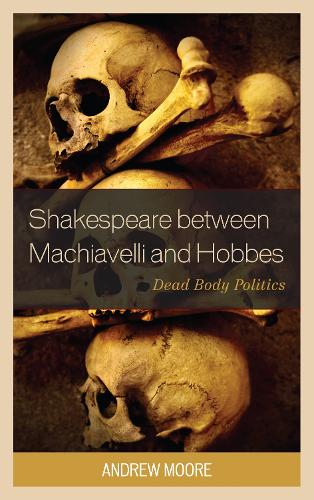
Shakespeare between Machiavelli and Hobbes: Dead Body Politics
(Paperback)
Available Formats
Publishing Details
Shakespeare between Machiavelli and Hobbes: Dead Body Politics
By (Author) Andrew Moore
Bloomsbury Publishing PLC
Lexington Books
23rd March 2018
United States
Classifications
Professional and Scholarly
Non Fiction
Literary studies: plays and playwrights
Comparative politics
Social and political philosophy
Literary studies: general
822.33
Physical Properties
Paperback
190
Width 152mm, Height 230mm, Spine 16mm
295g
Description
Shakespeare between Machiavelli and Hobbes explores Shakespeares political outlook by comparing some of the playwrights best-known works to the works of Italian political theorist Niccol Machiavelli and English social contract theorist Thomas Hobbes. By situating Shakespeare between these two thinkers, the distinctly modern trajectory of the playwrights work becomes visible. Throughout his career, Shakespeare interrogates the divine right of kings, absolute monarchy, and the metaphor of the body politic. Simultaneously he helps to lay the groundwork for modern politics through his dramatic explorations of consent, liberty, and political violence. We can thus understand Shakespeares corpus as a kind of eulogy: a funeral speech dedicated to outmoded and deficient theories of politics. We can also understand him as a revolutionary political thinker who, along with Machiavelli and Hobbes, reimagined the origins and ends of government. All three thinkers understood politics primarily as a response to our mortality. They depict politics as the art of managing and organizing human bodiescaring for their needs, making space for the satisfaction of desires, and protecting them from the threat of violent death. This book features new readings of Shakespeares plays that illuminate the playwrights major political preoccupations and his investment in materialist politics.
Reviews
Andrew Moores book, Shakespeare between Machiavelli and Hobbes: Dead Body Politics, is bold and enlightening.... Moores important book provides a philosophical framework that prods the careful reader to think more clearly about Shakespeares political wisdom. * VoegelinView *
Andrew Moore clearly reveals the overlap between the political and philosophical outlook that Shakespeare expresses in his dramas and the work of Machiavelli and Hobbes. At the same time, he recognizes important differences among them.This original contribution to both modern political thought and Shakespeare scholarship is beautifully written, and deepens our appreciation of Shakespeares wisdom. -- Mary Nichols, Baylor University
Andrew Moores penetration is evident in his recognition that philosophy conducts a continuous rethinking of the meaning of the concept nature. His signal contribution in these interrelated essays is to make us aware that Shakespeares plays conduct just such a rethinking. In the course thereof Moore gives us to understand how the playwright reveals the interdependence of moral and political liberty. -- John Alvis, University of Dallas
Author Bio
Andrew Moore is associate professor of great books at St. Thomas University.
